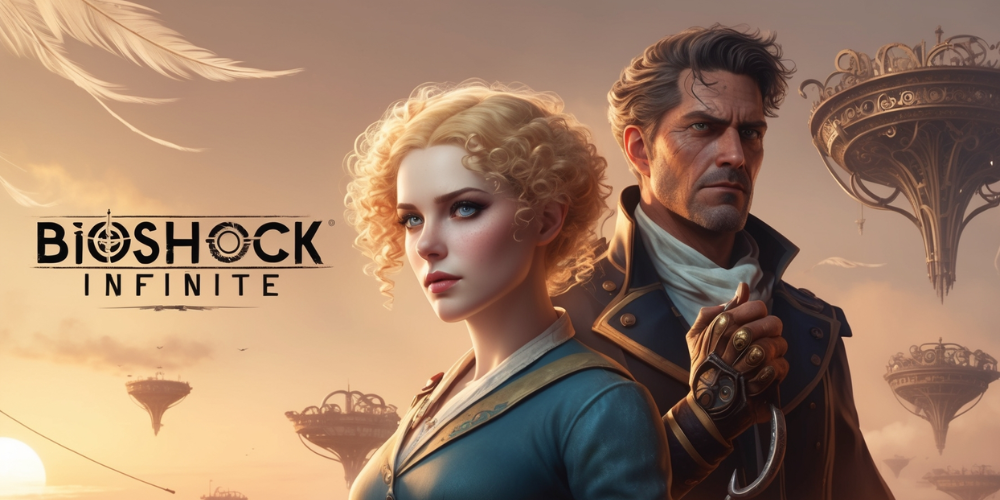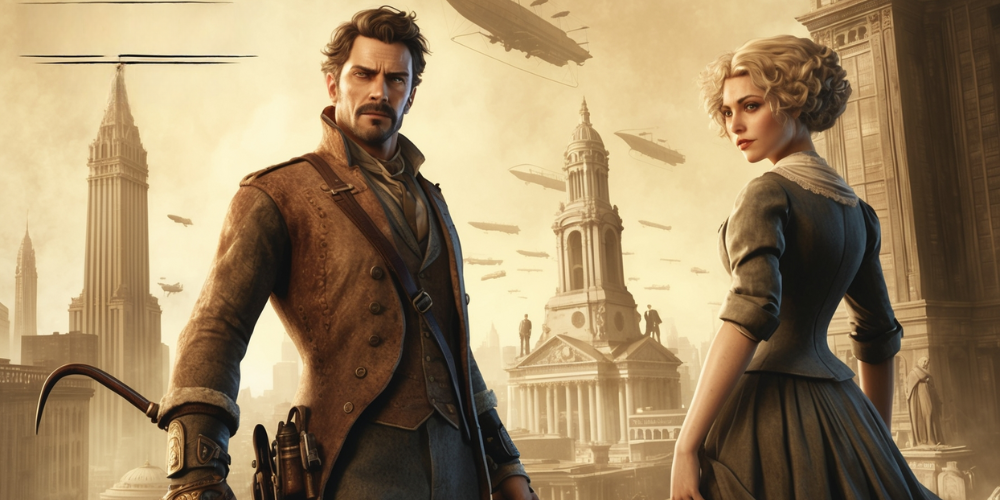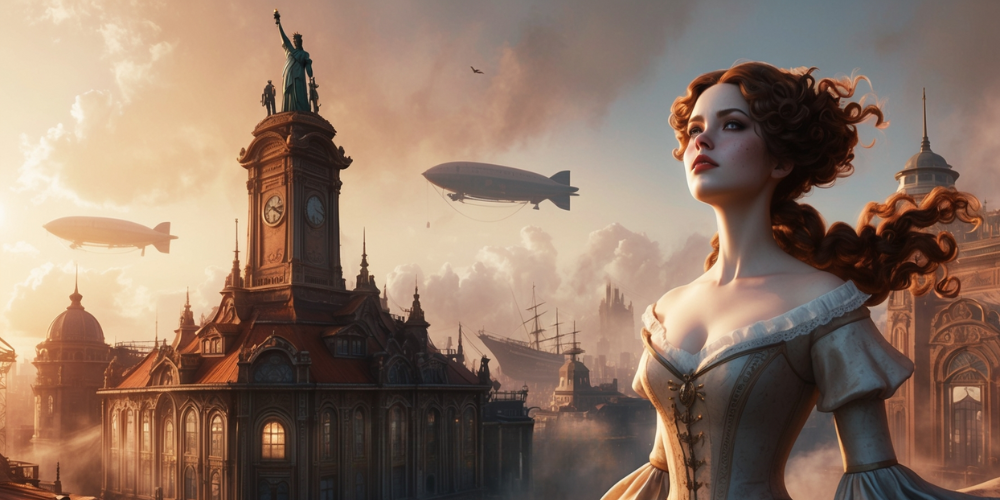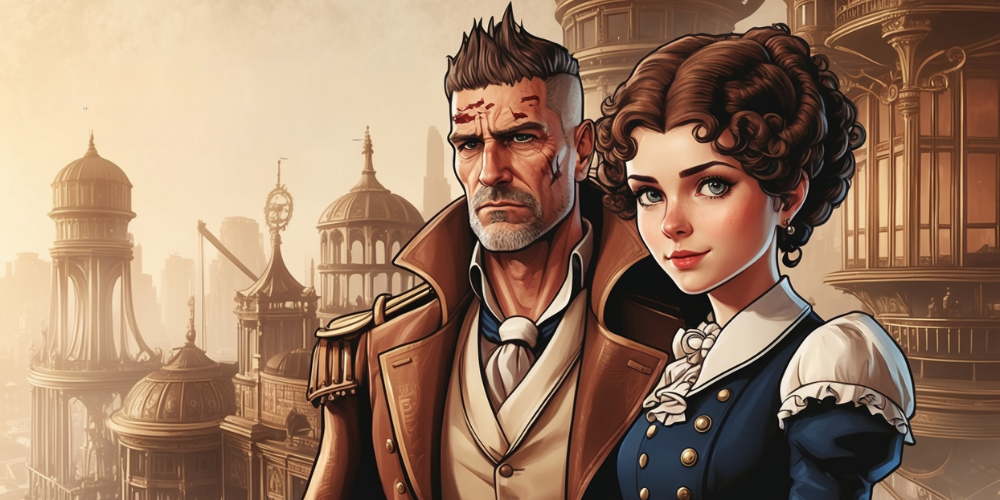Ethical Dilemmas in Bioshock Infinite
Sep-04-2024

As I embarked on my journey through the intricate world of Bioshock Infinite, I found myself immersed in a narrative that not only challenged my understanding of morality but also tugged at the very strings of my ethical compass. The game presented a plethora of ethical dilemmas that forced me to confront the implications of my actions and the broader socio-political themes woven within its storyline. Each decision I encountered was steeped in complexity, demanding me to navigate not just the physical landscape, but the moral terrain as well.
The Tyranny of Choice
One of the first ethical dilemmas that struck me was the overarching theme of choice and free will. In this world, choices seem abundant, but the reality is that every choice I made often led to far-reaching consequences that echoed throughout the narrative. It made me ponder the degree to which free will truly exists in a society deeply entrenched in systemic oppression and control. Was I, as Booker DeWitt, genuinely making autonomous decisions, or was I a mere pawn in a larger game orchestrated by forces beyond my comprehension?
The Question of Oppression
As I navigated through Columbia, I quickly became aware of the stark divide between the ruling class and the oppressed. The racism and xenophobia that permeated the society confronted me with the uncomfortable reality of how power dynamics shape human interactions. Elizabeth’s existence as a symbol of both freedom and bondage made me question the justification of oppressive systems. Was it ethical for the few to subjugate the many for the sake of maintaining an ideal? This philosophical conundrum left me grappling with the implications of societal structures that prioritize power over humanity.

Authority and Its Limitations
The role of authority figures was emblematic of the ethical challenges I faced. Characters such as Comstock represented extreme forms of control, believing in their divine purpose while simultaneously enacting violence and oppression against dissenters. Their actions prompted me to reflect on the nature of authority itself. Is it ethical to challenge authoritative figures when their actions are fueled by a belief in their moral superiority? This question lingered in my mind as I made decisions that would either undermine or reinforce the ruling power.
The Nature of Redemption
Booker’s search for redemption intertwined with ethical dilemmas surrounding guilt and accountability. His past was paved with violence and betrayal, leading me to wonder if redemption is even possible for someone whose actions have led to irreparable harm. Can one truly atone for their sins? The game placed me in situations where I had to face the consequences of past actions, blurring the lines between punishment and forgiveness.
Animalistic Instincts versus Human Morality
The brutality of combat and the instinct for survival compelled me to confront the clash between animalistic instincts and human morality. In the heat of battle, I was tasked with making split-second decisions that often resulted in collateral damage. This raised the question of whether survival at all costs is justifiable or whether the humanity within us should dictate how we engage with our adversaries. Having to face the harsh truth of violence prompted me to consider what genuinely distinguishes civilization from barbarism.

The Ethical Implications of Sacrifice
The sacrifice motif resonated throughout my journey, particularly when it came to the choices involving Elizabeth. Her role as a tool for power and control posed a dilemma: was it ethical to use her abilities for my objectives, knowing the risks and moral costs involved? This dilemma deepened as I recognized that achieving a greater good often necessitated individual sacrifice. That tension created an unsettling moral framework where the ends appeared to justify the means, yet the significance of individual lives loomed large.
Identity and the Ethical Self
The exploration of identity within Bioshock Infinite entangled me in ethical dilemmas concerning selfhood and morality. Booker’s struggle with his identity as both hero and anti-hero forced me to confront the implications of who I was in the realm of this dystopian society. How much of my identity was aligned with my ethical beliefs? This internal struggle became all the more poignant when confronted with the choices that would define not only my fate but also the fate of others.
The Complexity of Loyalty
One of the defining aspects of my adventure was the intricate web of loyalty that existed amongst characters—both allies and adversaries. Each relationship I forged was fraught with its own ethical implications. Loyalty can sometimes blind us to the moral failings of those we care about. As I navigated through layers of betrayal and trust, I pondered how loyalty, while often viewed as a virtue, could lead to ethical quandaries that challenge one's principles.
The Dilemma of Knowledge
As I uncovered the truths hidden within Columbia, I faced ethical dilemmas surrounding the acquisition of knowledge. The power of knowledge can liberate, but it also has the potential to destroy. I grappled with moments where gaining information came with the burden of responsibility. Was ignorance bliss, or did awareness mandate action? The implications of this intellectual burden weighed heavily on my conscience, forcing me to consider the moral ramifications of what I chose to know.

The Impact of Time and Reality
The game masterfully used the concepts of time and multiple realities, adding layers of ethical complexity. The realization that my actions could ripple through different timelines led me to question the morality of causality itself. If I could alter the past or future through my choices, was it ethical to do so? This concept challenged my understanding of determinism and free will, forcing me into a philosophical loop that tested my ethical framework.
The Fragility of Innocence
The preservation of innocence stood as a stark contrast to the violence and corruption that permeated Columbia. Throughout my journey, I encountered characters whose innocence had been shattered, serving as reminders of the cost of societal corruption. The ethical dilemma of protecting innocence versus confronting reality emerged vividly. I had to determine whether it was ethical to shield someone from the truth or to allow them the hard lessons that life ultimately offers.
Gender Dynamics and Ethical Considerations
Bioshock Infinite intricately wove gender dynamics into its narrative, placing me in a position to reflect upon ethical considerations regarding power, autonomy, and the treatment of women. Elizabeth, as a character, served as both a symbol of empowerment and a figure of objectification. I grappled with the ethical implications of her agency and the dynamics of male savior narratives. How can I navigate a world where gender constructs often dictate the moral landscape?
The Weight of Consequences
Every action taken within the game carried with it a load of consequences that echoed into the lives of characters both known and unknown. The ethical complexity of cause and effect became apparent as I recognized the collateral damage my decisions could cause. The moments where I had to make tough choices often left me with a gnawing sense of responsibility towards those affected. Could I live with the weight of the consequences that rippled out from my decisions?
Revenge versus Justice
The theme of vengeance played a pivotal role in the narrative, illuminating the ethical challenges that arise when the lines between justice and revenge blur. As I sought retribution for the wrongs inflicted upon me and those I cared about, I had to consider the moral implications of my quest. Was it ethical to pursue revenge, even if my motivations were rooted in a desire for justice? This internal conflict was a testament to the complexity of human emotions and ethical reasoning.
Illusion of the American Dream
Finally, I grappled with the ethical implications of the American Dream as portrayed in Bioshock Infinite. The illusion of prosperity and success masked the systemic issues of inequality and exploitation that plagued Columbia. This critical examination of the American ideal set the stage for ethical reflection on societal values and the narratives we choose to believe. How do we reconcile the ideal with the reality, and what is the ethical cost of upholding such illusions?







